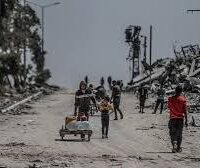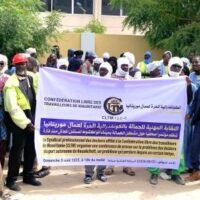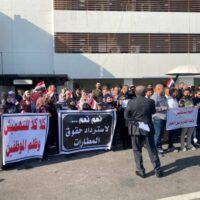
Reforming the Business Environment in Iraq: What Social Cost for Greater Competitiveness?
At a moment when Iraq is seeking to reposition its economy after years of crises and volatility, the “National Reform Agenda to Improve the Business

At a moment when Iraq is seeking to reposition its economy after years of crises and volatility, the “National Reform Agenda to Improve the Business

On the first day of Ramadan, a time that should be marked by mercy and tranquility, the road south of Port Said became the scene

In Lebanon, collapse does not begin when public administrations close their doors, but when workers continue to report to work without the ability to survive.

On the morning of Friday, 23 January 2026, the sit-in staged by workers of the Chinese company Poly Hondong in front of the Wilaya headquarters

In a country that ranks among the world’s major oil producers, a stark paradox is emerging at the start of 2026: wealth is extracted on

In one of UNRWA’s clinics in Gaza, a nurse apologizes to a child suffering from asthma because an inhaler is unavailable. Calmly, he explains that

The Free Confederation of Workers of Mauritania (CLTM), through the National Dockworkers’ Union, has warned of the serious social and legal consequences of the ongoing

Starting in 2026, the European Union has entered the phase of full implementation of its new legislative framework on migration and asylum, which was adopted

In recent weeks, workers in the civil aviation sector across several Iraqi airports have intensified protest actions in response to persistent violations of their fundamental

Brussels – 2 December 2025 The Arab trade union movement, represented by Waseem Rifi, participated in an event organized by the SOLIDAR Network inside the

The Arab Trade Union Confederation (ATUC) has received information regarding ongoing protest actions carried out by workers at Tartous Port in Syria, following the issuance

Morocco: Strike Law 97.15 Enters into Force… Unions Warn of an “Unprecedented Restriction” on Workers’ Right to Protest The Organic Law on the Right to